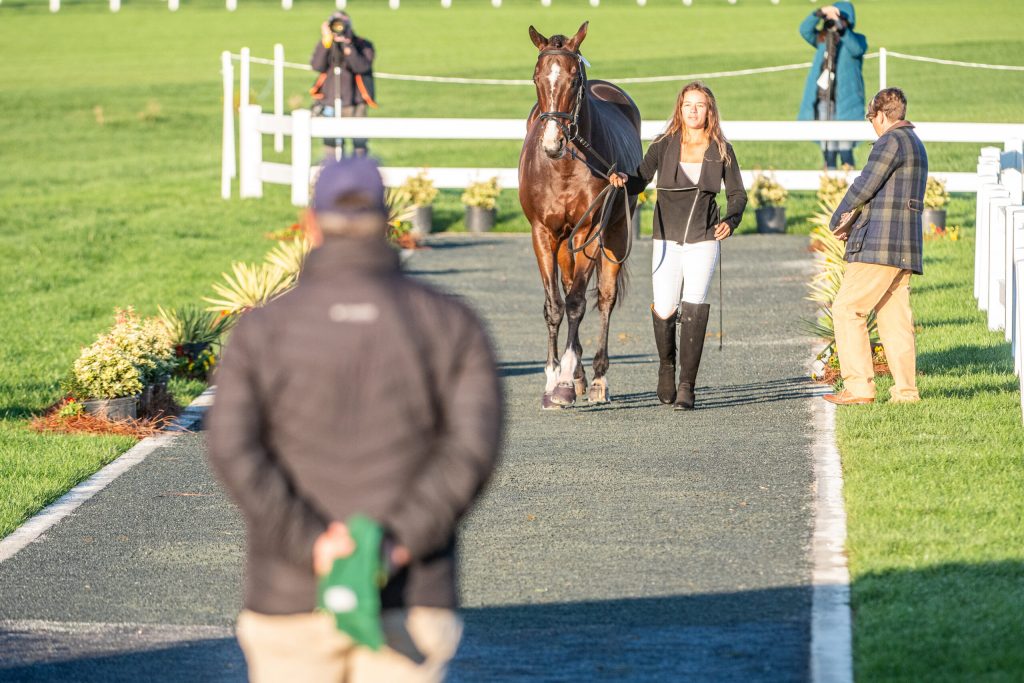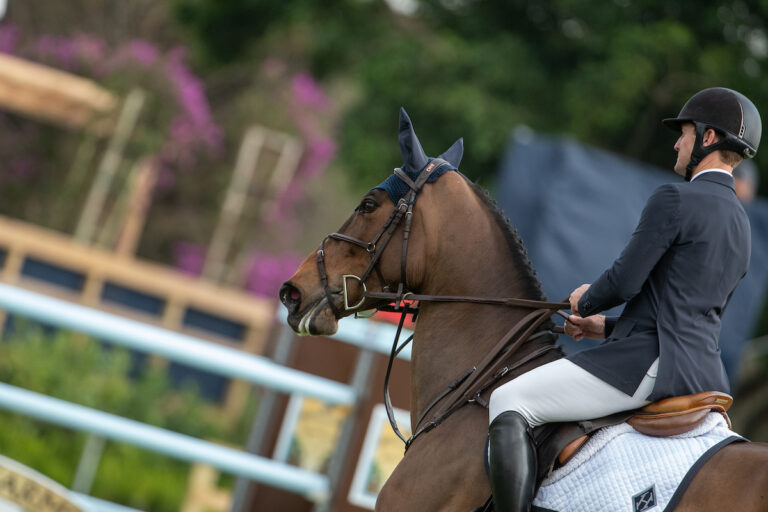The 2022 MARS Maryland 5 Star at Fair Hill led the way in collecting and keeping horses’ medical records secure and organized this year. The competition’s veterinary team used Equine MediRecord (EMR) to collect required health information for horses competing in the U.S. Eventing Association’s Young Event Horse East Coast Championship (YEH).

The event was held in Cecil County, Maryland, in conjunction with the CCI5*-L and CCI3*-L, Oct. 13-16.
As YEH horses arrived at the event, onsite competition staff and EMR representatives helped competitors log their horses’ information into the EMR system. This information included proof of vaccinations and veterinary certificates.
“We could not be more happy with the entire team at Equine MediRecord,” said competitor Alexander O’Neal, who was named to the 2019 and 2020 U.S Equestrian Federation Developing List. “It was a very systematic and easy way to get all the horses checked in. After a 16-hour drive from Florida to Maryland with four horses, this was a stress-free way to get all the horses settled into the venue.”
Determining Non-Compliance
The EMR system helped the veterinary team at the Maryland event determine which of the horses entered in the Young Event Horse East Coast Championships were compliant with vaccination requirements and other health paperwork. Ninety horses were listed on the starting orders for both the 4- and 5-year-olds.
Horses attending USEF-rated competitions must be vaccinated for equine influenza and equine herpes virus within six months of the competition. Similarly, many competitions require proof of vaccinations and a Certificate of Veterinarian Inspection (CVI), a document ensuring that a horse has recently been evaluated by a veterinarian for signs of illness.
Dr. Chuck Arensberg, a USEF Licensed Eventing Veterinarian and the FEI Veterinary Services Manager, was a Veterinary Delegate for the MARS Maryland 5 Star. He helped YEH competitors log in their horses at the event.
“While the FEI currently has an analog handwritten system in place to record only influenza vaccinations in horse passports, I feel that the USEF could benefit from a more modern and comprehensive digital format for influenza and rhinopneumonitis that allows an organizing committee’s veterinary team to review biosecurity risks prior to a competitor arriving on site,” Dr. Arensberg said.
Medication Violations Prevention
EMR also has developed an “antidoping” module for horse-racing events such as the Preakness Stakes, the Pegasus World Cup and the Saudi Cup. This technology allows an event’s veterinary team to check veterinary records of the horses submitted by competitors to ensure that there are no medication violations that could result in a positive drug test.
“Your data system has also proven in other equine sporting jurisdictions that it can also help to pre-clear horses with thorough Electronic Medical Record medication oversight to minimize costly and embarrassing medication ‘overages,’” Dr. Arensberg said.
If events require competitors to take part in EMR, then the competition pays the fees. Competitors also can created their own accounts at https://us.equinemedirecord.com/. The service is free for a month with no payment details taken until the end of the trial. They would then be able to access competitions’ health record requirements and electronically send the material before going to the event.
For more information, go to equinemedirecord.com.










